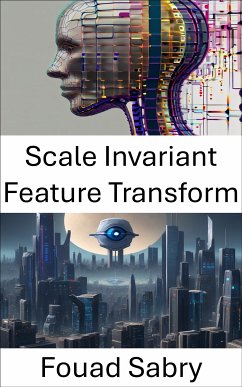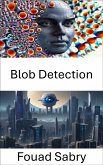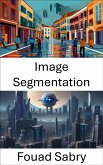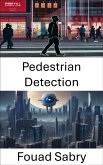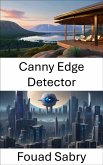What is Scale Invariant Feature Transform
SIFT, which stands for scale-invariant feature transform, is a method for computer vision that was developed by David Lowe in 1999. Its purpose is to identify, describe, and coincide with local features in images. Object recognition, robotic mapping and navigation, picture stitching, three-dimensional modeling, gesture recognition, video tracking, individual identification of wildlife, and match moving are some of the applications that can be used.
How you will benefit
(I) Insights, and validations about the following topics:
Chapter 1: Scale-invariant feature transform
Chapter 2: Edge detection
Chapter 3: Scale space
Chapter 4: Gaussian blur
Chapter 5: Feature (computer vision)
Chapter 6: Corner detection
Chapter 7: Affine shape adaptation
Chapter 8: Hessian affine region detector
Chapter 9: Principal curvature-based region detector
Chapter 10: Oriented FAST and rotated BRIEF
(II) Answering the public top questions about scale invariant feature transform.
(III) Real world examples for the usage of scale invariant feature transform in many fields.
Who this book is for
Professionals, undergraduate and graduate students, enthusiasts, hobbyists, and those who want to go beyond basic knowledge or information for any kind of Scale Invariant Feature Transform.
SIFT, which stands for scale-invariant feature transform, is a method for computer vision that was developed by David Lowe in 1999. Its purpose is to identify, describe, and coincide with local features in images. Object recognition, robotic mapping and navigation, picture stitching, three-dimensional modeling, gesture recognition, video tracking, individual identification of wildlife, and match moving are some of the applications that can be used.
How you will benefit
(I) Insights, and validations about the following topics:
Chapter 1: Scale-invariant feature transform
Chapter 2: Edge detection
Chapter 3: Scale space
Chapter 4: Gaussian blur
Chapter 5: Feature (computer vision)
Chapter 6: Corner detection
Chapter 7: Affine shape adaptation
Chapter 8: Hessian affine region detector
Chapter 9: Principal curvature-based region detector
Chapter 10: Oriented FAST and rotated BRIEF
(II) Answering the public top questions about scale invariant feature transform.
(III) Real world examples for the usage of scale invariant feature transform in many fields.
Who this book is for
Professionals, undergraduate and graduate students, enthusiasts, hobbyists, and those who want to go beyond basic knowledge or information for any kind of Scale Invariant Feature Transform.
Dieser Download kann aus rechtlichen Gründen nur mit Rechnungsadresse in A, B, BG, CY, CZ, D, DK, EW, E, FIN, F, GR, H, IRL, I, LT, L, LR, M, NL, PL, P, R, S, SLO, SK ausgeliefert werden.

